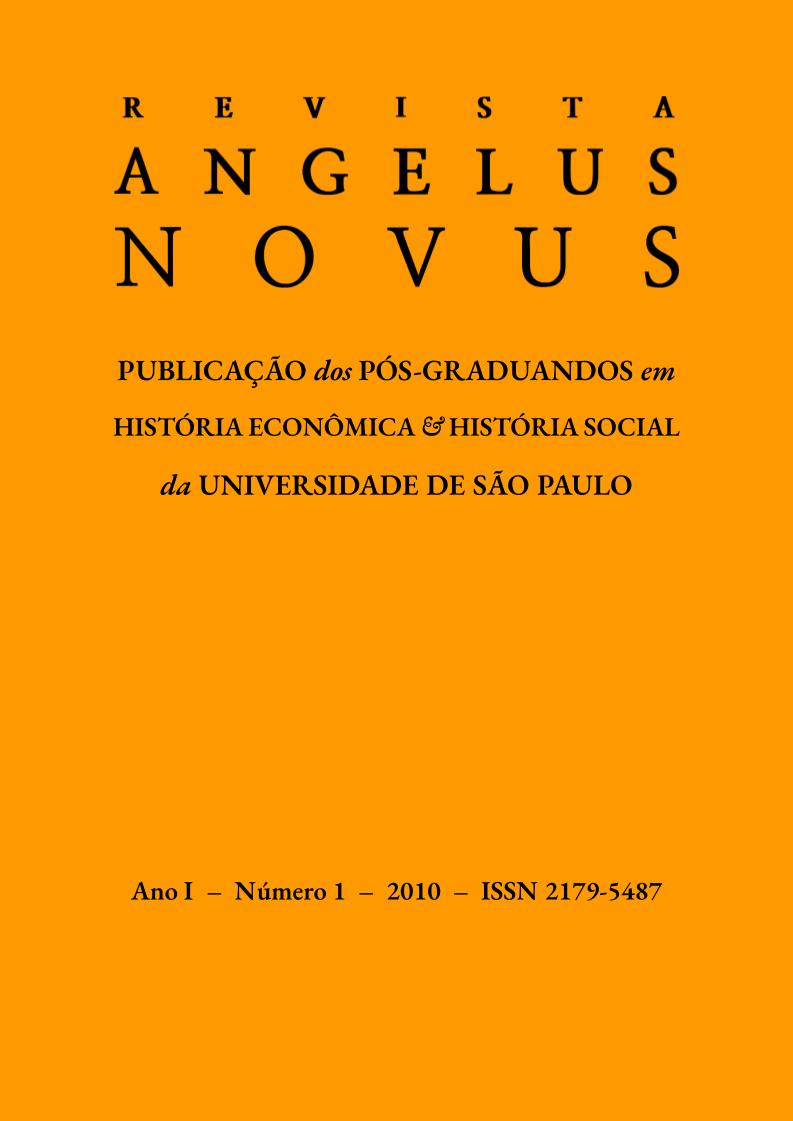Duas partes do Império
São Paulo e Pernambuco na dinâmica do abastecimento interno da América portuguesa entre os anos de 1580 e 1720
DOI:
https://doi.org/10.11606/ran.v0i1.88830Palavras-chave:
mantimentos, açúcar, comércio, regiões coloniais, época modernaResumo
São Paulo e Pernambuco integravam parte dos territórios pertencentes ao Império português, e da mesma forma que todas as outras regiões, essas “partes” influenciavam de formas diversas a constituição das características do Ultramar. Todavia, os engenhos de açúcar e o papel de destaque de Pernambuco, acompanhado pela Bahia e adjacências, sempre foram considerados o melhor símbolo da economia e da pujança colonial do Brasil. Até o momento das descobertas mais expressivas de ouro, os interesses dos reis colonizadores estiveram voltados essencialmente para o açúcar do Nordeste. Contudo, o comércio menos expressivo de mantimentos também despertava interesses via impostos que eram cobrados; e a fiscalização era intensa. Apresentar uma primeira avaliação dos papéis das duas regiões mencionadas no âmbito do Império, tendo em vista os variados interesses envolvidos, é o que pretendemos realizar neste artigo.
Downloads
Downloads
Publicado
Edição
Seção
Licença
1. Proposta de Política para Periódicos de Acesso Livre
Autores que publicam nesta revista concordam com os seguintes termos:
- Autores mantém os direitos autorais e concedem à revista o direito de primeira publicação, com o trabalho simultaneamente licenciado sob a Creative Commons Attribution License que permitindo o compartilhamento do trabalho com reconhecimento da autoria do trabalho e publicação inicial nesta revista.
- Autores têm autorização para assumir contratos adicionais separadamente, para distribuição não-exclusiva da versão do trabalho publicada nesta revista (ex.: publicar em repositório institucional ou como capítulo de livro), com reconhecimento de autoria e publicação inicial nesta revista.
- Autores têm permissão e são estimulados a publicar e distribuir seu trabalho online (ex.: em repositórios institucionais ou na sua página pessoal) a qualquer ponto antes ou durante o processo editorial, já que isso pode gerar alterações produtivas, bem como aumentar o impacto e a citação do trabalho publicado (Veja O Efeito do Acesso Livre).






